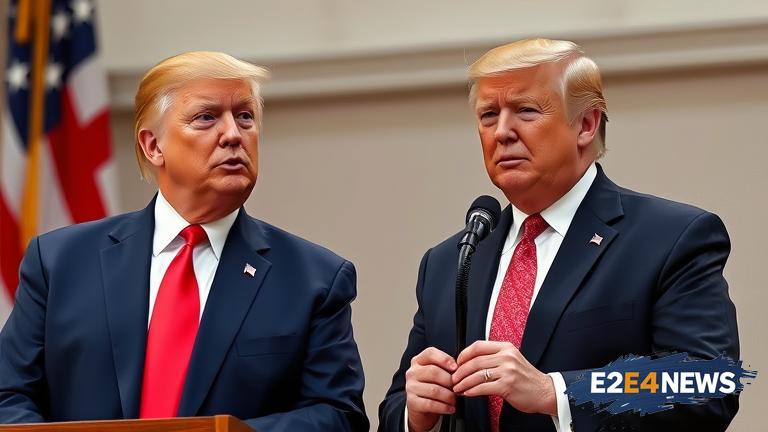In a recent statement, former President Donald Trump launched a scathing attack on Republican Senator Josh Hawley, labeling him a ‘second-tier’ senator and a ‘pawn’ for his support of a ban on stock trading by members of Congress. Trump’s criticism stems from Hawley’s backing of a bill that aims to prevent lawmakers from engaging in insider trading by prohibiting them from trading stocks. The former President’s remarks have sparked a heated debate within the Republican Party, with some lawmakers defending Hawley’s stance and others criticizing his decision to support the ban. The bill, which has gained significant attention in recent months, seeks to increase transparency and prevent conflicts of interest among lawmakers. By banning stock trading, the bill’s proponents argue that it would help to restore public trust in government and prevent lawmakers from using their positions for personal financial gain. However, Trump and some other critics have argued that the ban would be unfair to lawmakers and could potentially lead to unintended consequences. The former President’s attack on Hawley is not surprising, given his history of criticizing lawmakers who do not align with his views. Hawley, a Republican from Missouri, has been a vocal supporter of the ban and has argued that it is necessary to prevent corruption and increase transparency in government. Despite Trump’s criticism, Hawley remains committed to his stance, and the bill continues to gain momentum in Congress. The debate over the stock trading ban has highlighted the deep divisions within the Republican Party, with some lawmakers prioritizing transparency and accountability, while others prioritize the interests of their donors and supporters. As the bill moves forward, it is likely to face significant opposition from lawmakers who are opposed to the ban, and its fate remains uncertain. The controversy surrounding the stock trading ban has also sparked a wider debate about the role of money in politics and the need for greater transparency and accountability in government. With the midterm elections approaching, the issue is likely to remain a major point of contention among lawmakers and voters alike. The stock trading ban has been endorsed by a number of high-profile lawmakers, including Democratic Senator Elizabeth Warren, who has long been a vocal advocate for greater transparency and accountability in government. Warren and other supporters of the ban argue that it is necessary to prevent corruption and ensure that lawmakers are working in the best interests of their constituents, rather than their own personal financial interests. The ban has also been supported by a number of government watchdog groups, who argue that it is necessary to restore public trust in government and prevent the kind of corruption and self-dealing that has become all too common in Washington. Despite the support for the ban, it is likely to face significant opposition from lawmakers who are opposed to it, and its fate remains uncertain. The controversy surrounding the stock trading ban has highlighted the need for greater transparency and accountability in government, and has sparked a wider debate about the role of money in politics. As the debate continues, it is likely that the issue will remain a major point of contention among lawmakers and voters alike. The stock trading ban is just one example of the kinds of reforms that are needed to restore public trust in government and prevent corruption. Other reforms, such as stricter campaign finance laws and greater transparency in government contracting, are also necessary to ensure that lawmakers are working in the best interests of their constituents. Ultimately, the fate of the stock trading ban will depend on the ability of lawmakers to put aside their differences and work towards a common goal of increasing transparency and accountability in government. The controversy surrounding the ban has highlighted the deep divisions within the Republican Party, and has sparked a wider debate about the role of money in politics. As the debate continues, it is likely that the issue will remain a major point of contention among lawmakers and voters alike.
